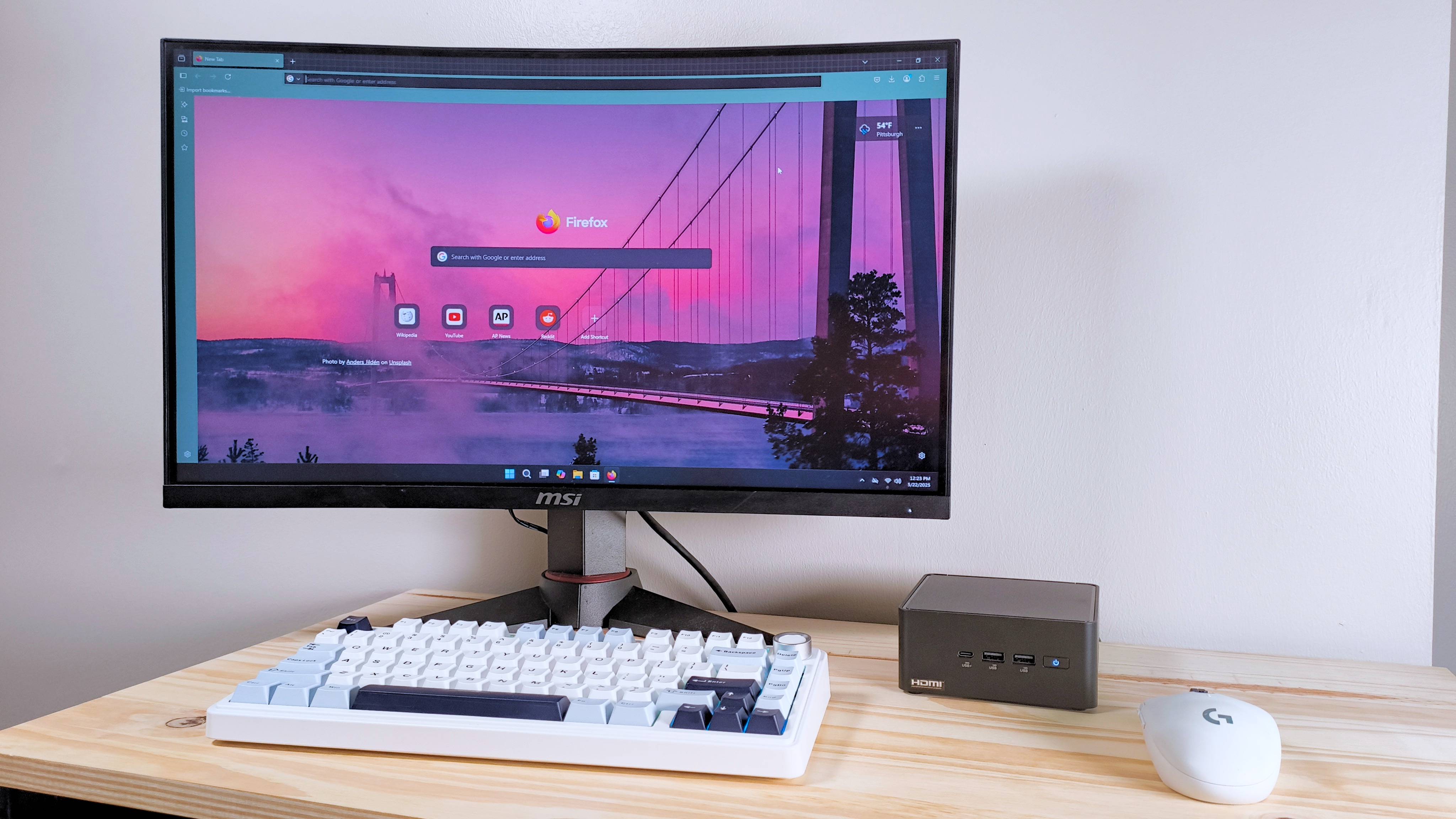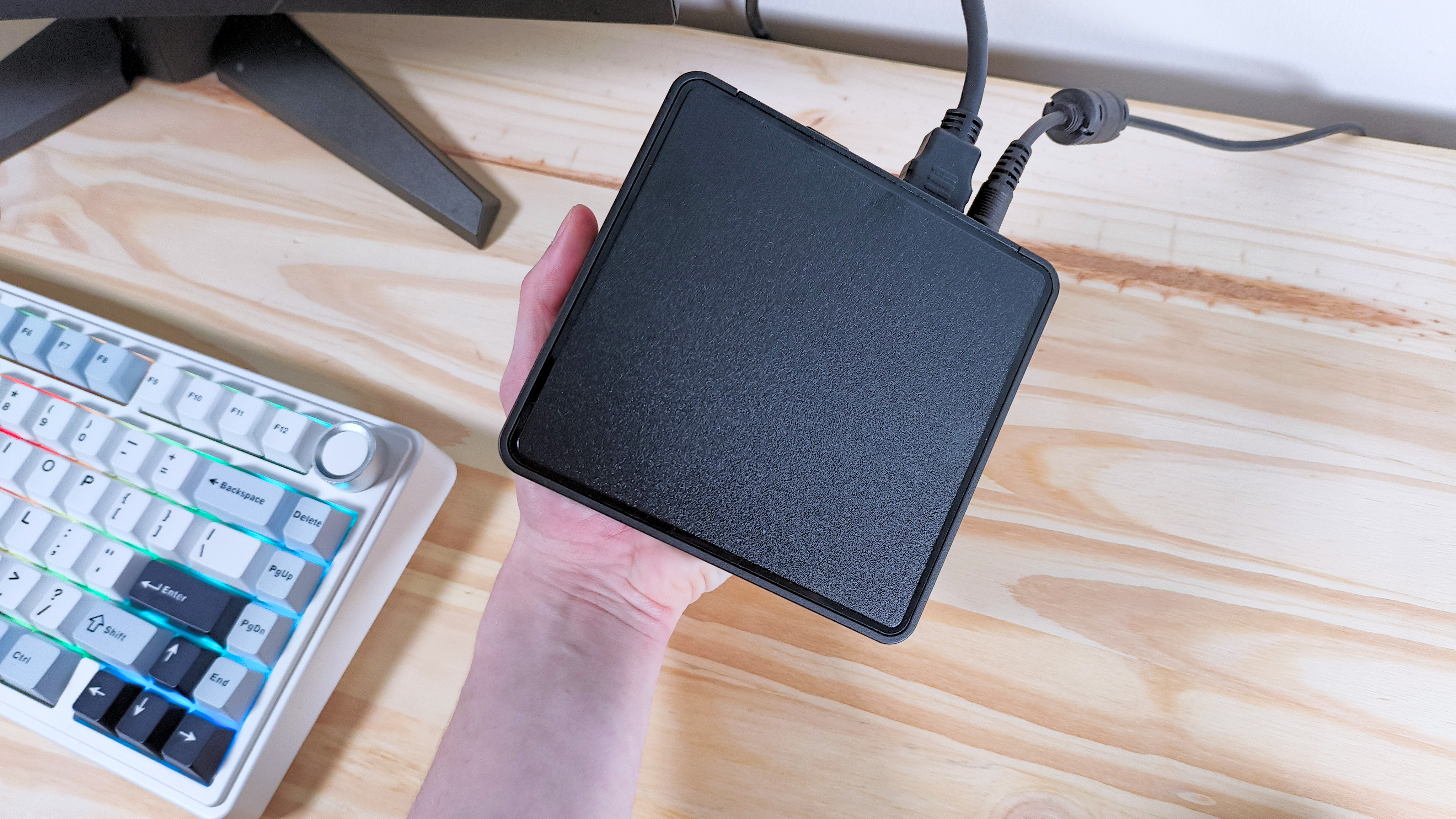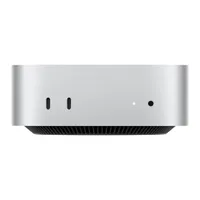The Asus NUC 14 Pro has a mini chassis but a big price: Save money with these top 3 affordable mini PCs
Searching for a mini PC? Don't waste your money on the wrong one!

Sign up to receive The Snapshot, a free special dispatch from Laptop Mag, in your inbox.
You are now subscribed
Your newsletter sign-up was successful
Mini PCs might be pocket-sized compared to your laptop, but they can be just as expensive. That's why you need to make sure you're getting one that offers good performance for your money, which often means spending less.
The Asus NUC 14 Pro is a prime example. While reviewing this mini PC, I was struck by how it fell far short of other mini PCs in our performance tests, despite being the most expensive option in the bunch.
Mini PCs can be a more affordable alternative to full-tower desktop PCs and even laptops, but some are a better deal than others. Before buying the NUC 14 Pro, you should know about a few alternatives that offer more performance for less money.
See also: Best laptop deals
How much should you spend on a mini PC?

Mini PCs can be a good middle ground between bulky tower desktops and mobile but pricey laptops. While there are plenty of expensive, premium options out there, there are also some mini PCs that offer more than enough performance for the average user for far less than a laptop with comparable specs would cost.
For most people, you should aim to spend at most $800 on a mini PC. To put that into context, many of the best laptops are over $1,000. Of course, with a mini PC, you also need to buy a display, keyboard, and mouse, but there are plenty of budget-friendly options in that department, too.
Mini PCs also offer more freedom for customization compared to laptops, which can end up saving you money in the long run. Many mini PCs allow you to add or upgrade your RAM or storage with whatever aftermarket RAM and SSD sticks you want. All you have to do is pop open the case, plug in your memory or storage stick in the proper slot, and you're good to go.
Sign up to receive The Snapshot, a free special dispatch from Laptop Mag, in your inbox.
Buying your own RAM or SSD sticks is often much less expensive than buying memory or storage upgrades on a laptop, where you usually can't upgrade those features after your purchase. As a result, mini PCs give you more control and flexibility, allowing you to increase your storage or RAM down the line if you need to, rather than replace your whole PC.
Additionally, mini PCs have a very small footprint on your desk, making them great for small workspaces. They can also be a good laptop alternative if you're just hopping between home and the office. Mini PCs are small and lighter than a lot of laptops and usually less fragile, too.
3 mini PCs that offer great value for your money
The Asus NUC 14 Pro isn't necessarily a bad mini PC, but it's a good cautionary tale for spending too much and getting too little performance in return. It underperformed on our graphics and performance benchmark tests significantly, falling far behind less pricey competitors.
If you're searching for a great mini PC, there are a few sub-$800 options you should take a look at first.
1. Geekom AX8 Pro AI
For example, the Geekom AX8 Pro AI is a Windows 11 mini PC like the NUC 14 Pro, but it offers far better gaming performance and stronger overall performance. This pocket-sized PC features an AMD Ryzen 7 8745HS processor with Radeon 780M integrated graphics that punch way above their weight class. The 512GB model comes in at just $529, almost 50% less than the Asus NUC 14 Pro.
Specs: AMD Ryzen 7 8845HS, Radeon 780M integrated graphics, 32GB of RAM, 1TB of storage
The AX8 Pro AI is available for $899 for a configuration with an AMD Ryzen 9 8945HS processor and 2TB of storage. You are also able to upgrade the storage and RAM on your own after purchasing.
Our review: ★★★★
2. M4 Mac Mini
The M4 Mac Mini is another fantastic option, although it does have the unfortunate drawback of locked-in RAM and storage. Whatever RAM and storage configuration you purchase initially is what you're stuck with. Apple doesn't allow users to add their own RAM or SSDs to the Mac Mini, which is disappointing.
With that said, the Mac Mini can still be a great mini PC, especially if you're looking to run macOS on a budget. It starts at just $599 and crushed all of our performance tests. With a Geekbench 6 score of 14,838, it outperforms most other mini PCs at this price, and many laptops, too.
Specs: Apple M4 processor, 10-core integrated GPU, 16GB of RAM, 256GB of storage
The Mac Mini is also available for $799 for a configuration with 512GB of storage (which we'd recommend as a minimum). There is also a configuration with the M4 Pro chip for power users who need a little more performance.
3. Acemagic F2A
Finally, there's the Acemagic F2A. While Acemagic is a smaller brand, the F2A performed well overall on our performance tests, especially considering it's currently down to just $499 for a configuration with 32GB of RAM and 1TB of storage.
The Acemagic F2A came in behind the M4 Mac Mini and the Geekom AX8 Pro AI in our benchmark tests, but it still outperformed the Asus NUC 14 Pro. If you're looking for a super affordable Windows mini PC, the Acemagic F2A is a tough deal to beat right now.
Specs: Intel Core Ultra 5 125H, Intel Arc integrated graphics, 32GB of RAM, 1TB of storage
These are just a few mini PCs that offer a good balance of price and performance. Depending on your needs, it may make sense to spend a bit more, like if you're a power user looking for more performance. If that's the case, focus on getting the most powerful processor you can and save money on memory and storage if you need to, since most mini PCs allow you to upgrade those specs after your purchase.
It's worth noting, though, that mini PCs aren't usually ideal for gaming. If you're looking for something specifically or gaming, you would be better served with one of the best gaming laptops or even one of the best handheld gaming PCs.
More from Laptop Mag
- This Geekom Mini PC is so small, I almost forgot where I put it
- 'Doom: The Dark Ages' is my favorite kind of nightmare — this is how it runs on an RTX 5090 gaming laptop
- I ditched Windows 11 for Linux — and you should, too

Stevie Bonifield is a freelance tech journalist who has written for PC Gamer, Tom's Guide, and Laptop Mag on everything from gaming to smartwatches. Outside of writing, Stevie loves indie games, TTRPGs, and building way too many custom keyboards.



